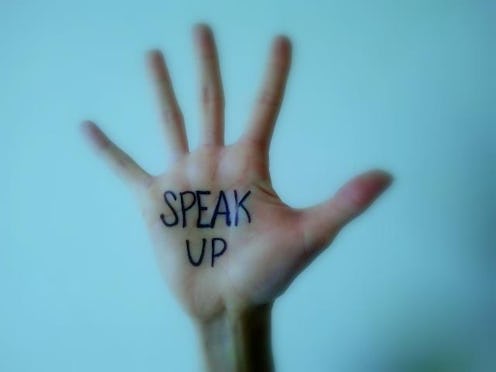Life
Should Posting Revenge Porn Be Illegal?

Revenge porn is one of the starkest examples of how the Internet facilitates evil. In another era, a disgruntled ex with some X-rated photos or a sex tape may have shown them to his friends. Now, he can share them with the world.
For the uninitiated, "revenge porn" is the term used for posting sexual photos or videos of people (often exes, usually women) without their consent. There are whole websites devoted to this filth, with names like MyEx.com (tagline: "Get revenge! Naked pics of your ex"). In the past few years, the prevalence of revenge porn has been increasing, along with media horror stories about the women whose lives this phenomenon are ruining. Much of the time, the revenge involves much more than just posting the salacious content, with perpetrators including full names, addresses, links to social media profiles and other identifying information along with their photos or clips. In the age of Google, this can be not only embarrassing but detrimental to future job prospects, relationships, etcetera.
Slate's Emily Bazelon wrote this week about the near-impossibility of prosecuting revenge-porn purveyors. She told of Holly Jacobs, founder of End Revenge Porn, who had nude photos and sexual videos of her uploaded to the web by an ex. Jacobs tried to fight back by contacting the host sites owners, as well as going to local police and the FBI. None of it worked.
"This can’t be right — revenge porn cannot be allowed to be a harm without a remedy," writes Bazelon. But a California bill aiming to address it (only the second of its kind in the United States) doesn't go far enough, she says.
It makes it a misdemeanor offense to post revenge porn only if a prosecutor shows that the poster intended to inflict emotional distress, rather than treating the act of posting a sexual photo without consent as an objectively harmful invasion of privacy. And the punishment wouldn’t apply if the subject of the photo took the picture herself, which means it wouldn’t help people whose exes persuaded them to hand over photos as a sign of trust.
Those are pretty glaring omissions. Though there's no data on this sort of thing, one has to imagine that a significant portion of revenge porn involves photos or videos that victims willingly take and share at the time. Some say that's qualitatively different — if a person puts her or himself out there like that, they forfeit the right to cry victim later. This is pretty patently absurd, however; if you give someone a key to your house and then later they come back and rob you, the robbery would still be a crime wouldn't it? If you have consensual sex with someone once, that doesn't give them the right to come screw you in perpetuity.
Amanda Marcotte has written about this absurd logic frequently. "We should recognize that a picture offered as a consensual sexual gesture can later be turned into a tool to harass and abuse — and there should be penalties for that," Marcotte says. That does seem reasonable, no?
Even though revenge porn website purveyor Hunter Moore may pretend the motivation is nothing but an opportunity "to look at naked girls all day," in reality, the act of uploading a nudie picture to punish a woman for leaving you is less an erotic act and closer to the criminal behavior of stalking. Despite the word porn, it's clear the point is to humiliate and dominate and to send the message to the victim that she is not allowed to leave you just because she wants to.
Marcotte and others believe that we should amend stalking or anti-harassment laws to include this type of activity. And the group End Revenge Porn has put out model legislation that would criminalize non-consensual distribution of pornography regardless of who originally held the camera. Hopefully, California and other states will give this serious consideration. Refusing to treat revenge porn like we do other privacy violations says to women that we just don't really care that much about their humiliation and abuse.
Photo via End Revenge Porn Facebook